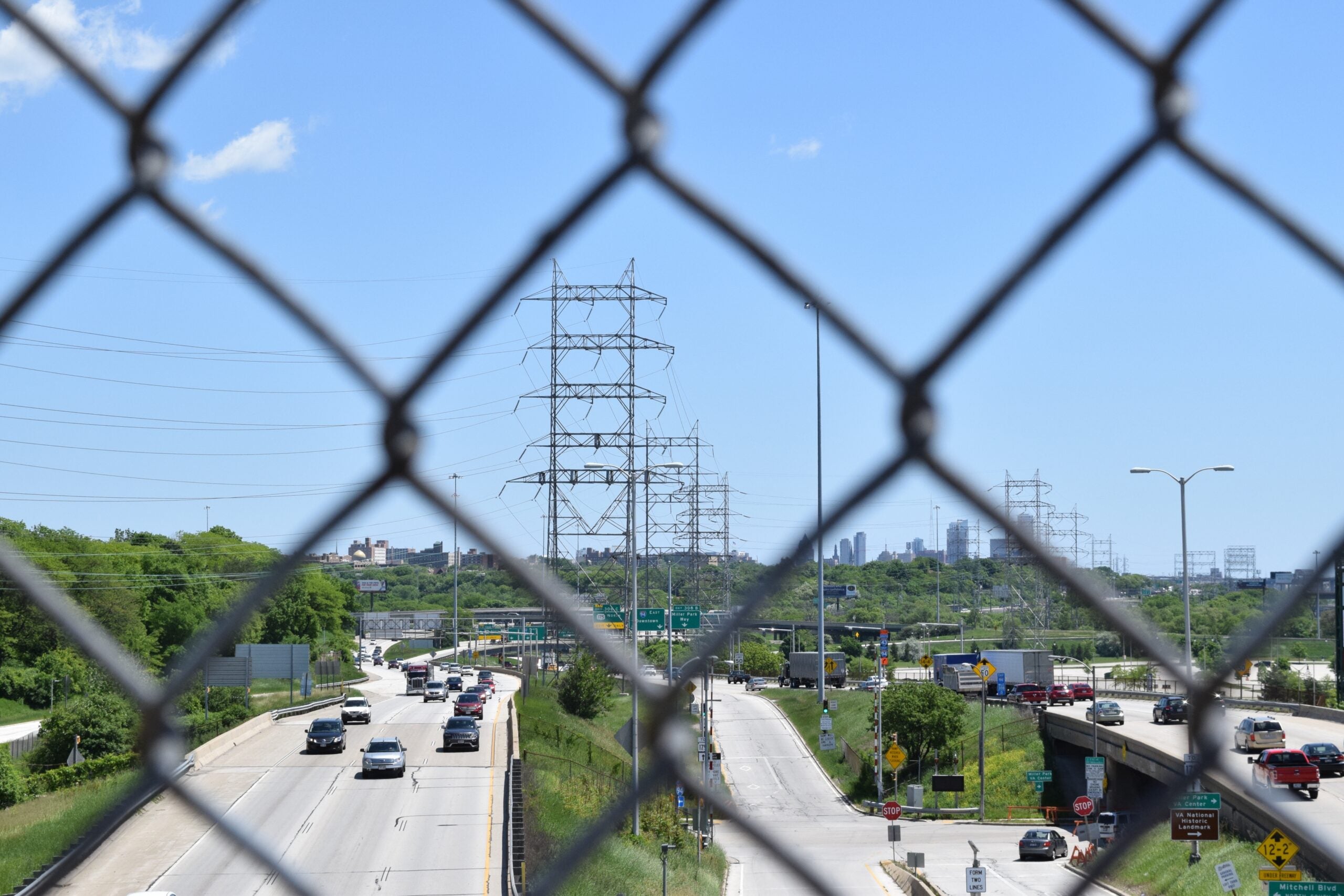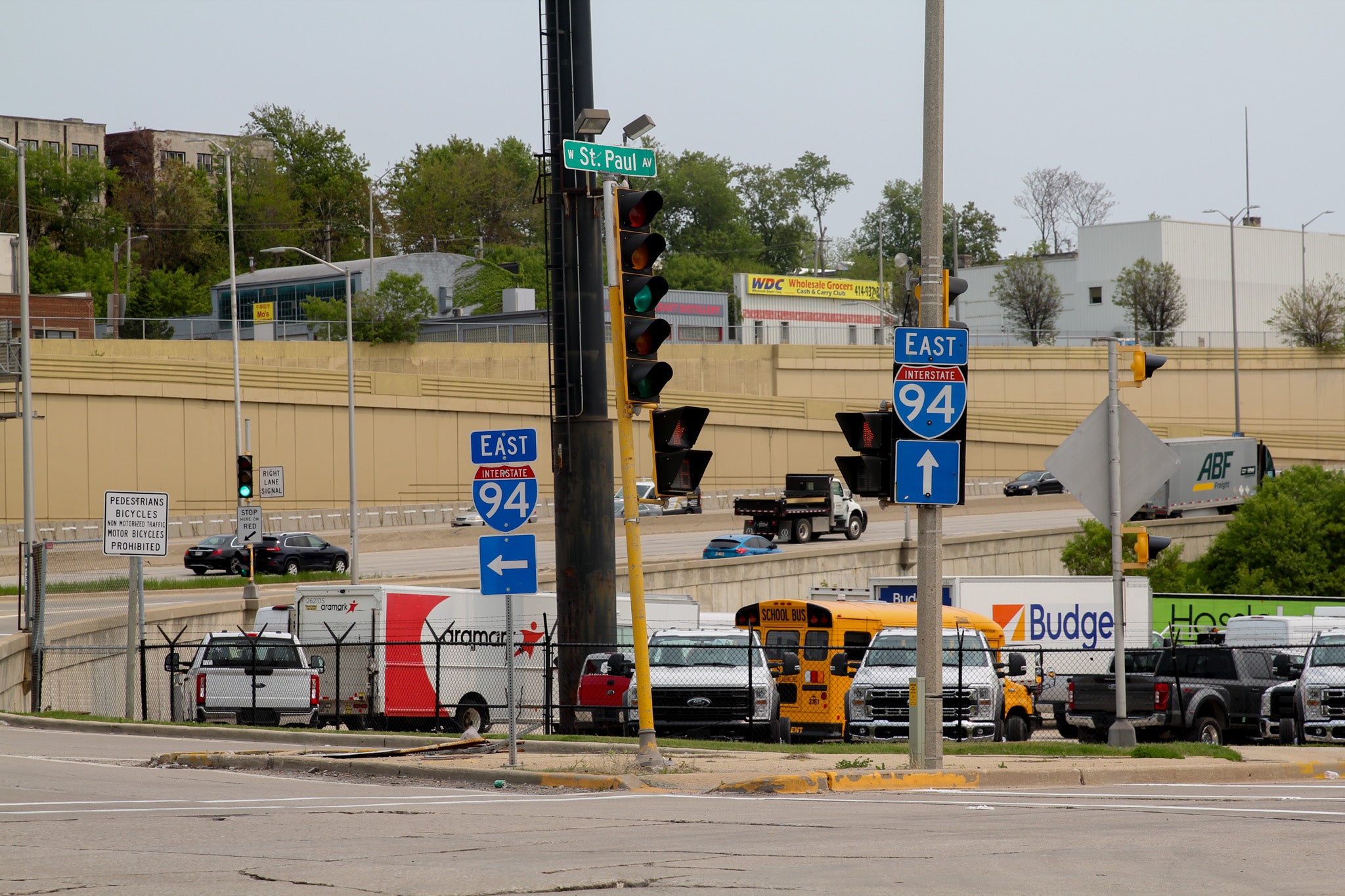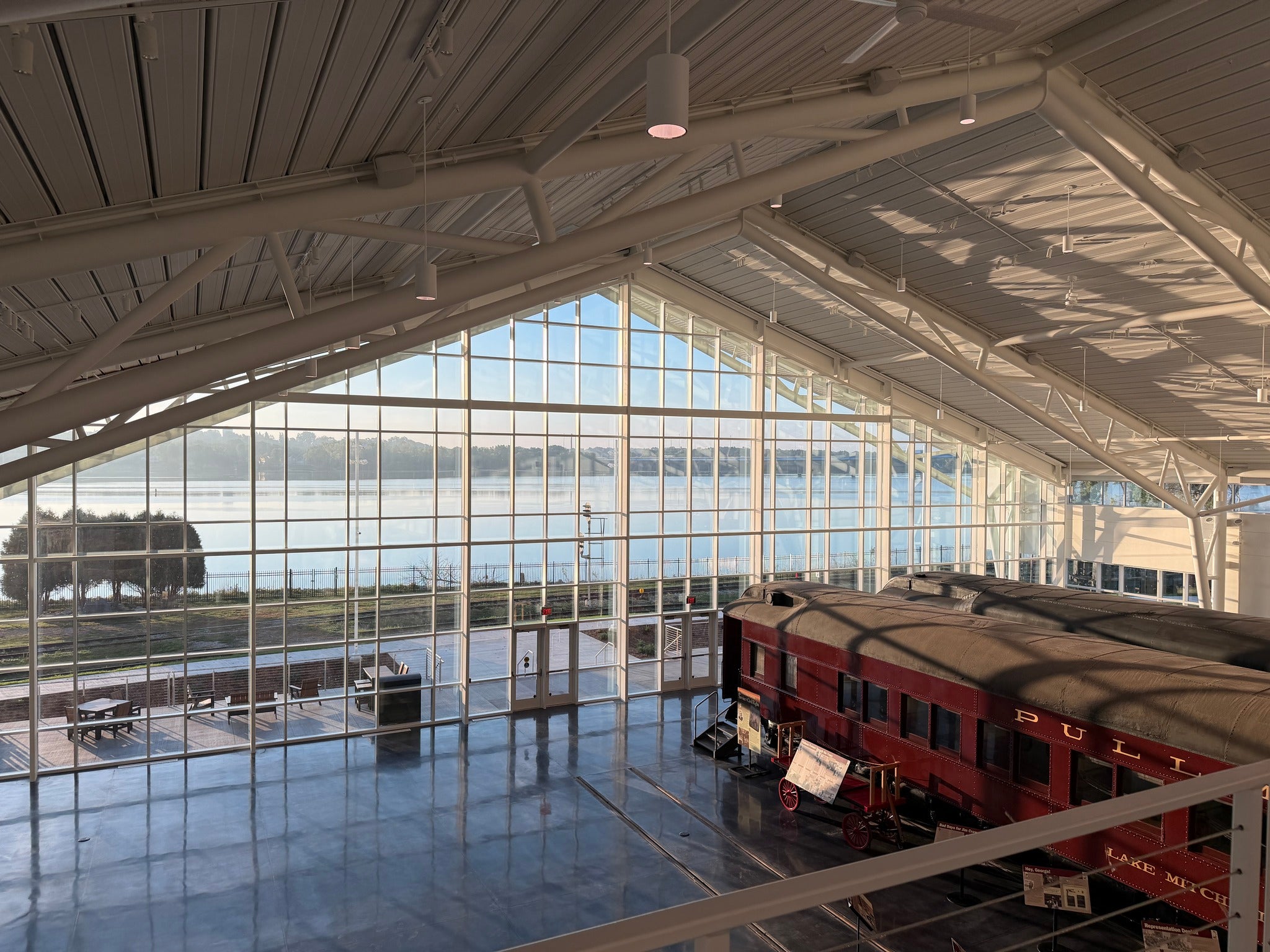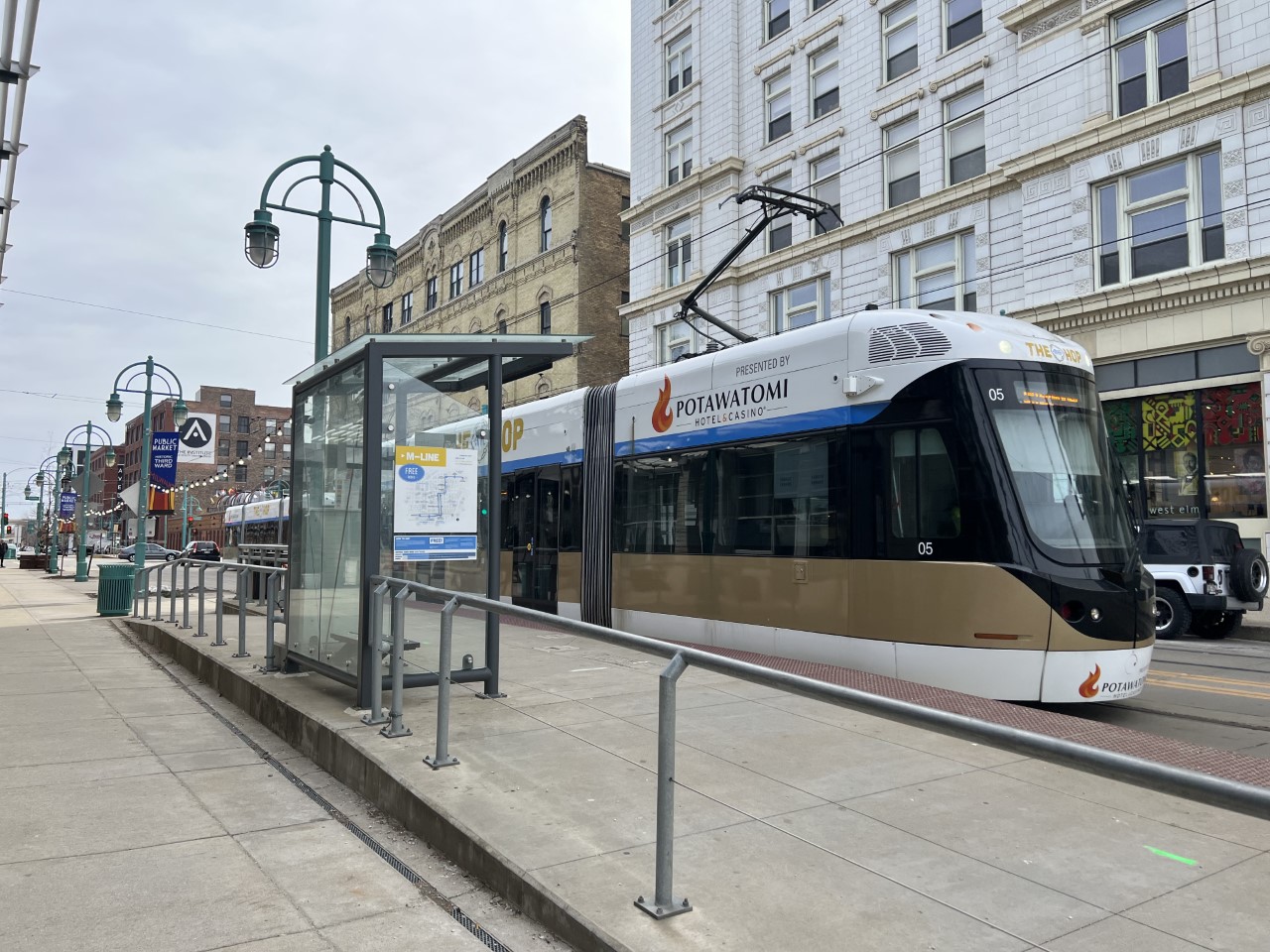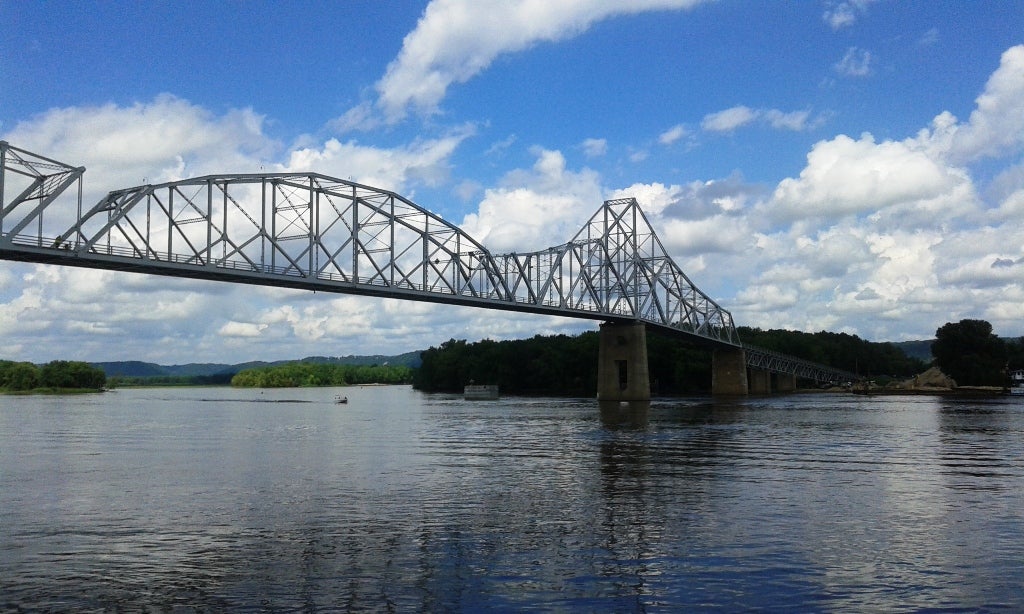Some Milwaukee Common Council members are questioning the state’s $1 billion plan to expand a 3-mile stretch of the Interstate 94 freeway system connecting the Marquette and Zoo interchanges.
The project was halted in 2016 by former Gov. Scott Walker and brought back in 2020 by Gov. Tony Evers.
This week, a city council committee unanimously approved a resolution directing city lobbyists to ask the Federal Highway Administration not to allow the expansion to move forward without a new environmental impact study. The full council will vote on the resolution Feb. 9.
News with a little more humanity
WPR’s “Wisconsin Today” newsletter keeps you connected to the state you love without feeling overwhelmed. No paywall. No agenda. No corporate filter.
Council members say traffic patters have changed since the project was originally approved, and at the very least, a new study needs to be done. They say reconstruction of the 60-year-old highway system is necessary, but about $250 million can be saved by not expanding it from three lanes to four on each side.
“That’s a significant sum of money that would go a long way to repairing local streets, local bridges and infrastructure across the state of Wisconsin,” said Alder Robert Bauman.
Bauman said no decisions should be made regarding the project until in-person public hearings can be held.
“It’s an issue of transparency,” Bauman said.
Alder Michael Murphy, who represents more than half of the area affected, agreed, saying until residents can meet in person to discuss this plan, the expansion should not move forward.
“This project has been on hiatus for four years and the world has really changed,” Murphy said. “For most demographic and urban planners there is a new paradigm shift in how the world will go forward, which has to have some impact.”
Wisconsin Department of Transportation Secretary Craig Thompson says the highway section needs to be rebuilt, but doing so without expanding doesn’t make financial sense, and isn’t safe.
The freeway stretch has both right and left-side exit ramps and is an hour-glass shape requiring different spots where vehicles have to merge. Thompson said those things need to be eliminated to reduce accidents.
DOT estimates 160,000 cars per day travel this stretch of freeway.
“This is the busiest artery in the state,” Thompson said. “Whether you are a milk producer in the La Crosse (or) Eau Claire area or a manufacturer up in northern Wisconsin, this matters, because we have billions of dollars that flow through this area.”
Thompson said Walker postponing the reconstruction and expansion was a mistake, and doing so did not allocate any money to local roads or mass transit.
Thompson said Evers’ next budget will include money to improve “potholes and city streets.”
Several union groups opposed the Milwaukee Common Council wanting to change the DOT project.
In a letter signed by International Union of Operating Engineers Local #139; Iron Workers Local #8; North Central States Regional Council of Carpenters and Wisconsin Laborers’ District Council, the union members said the project would create up to 10,000 good paying jobs.
“Economic uncertainty remains because of the ongoing coronavirus pandemic but having a project like the I-94 East-West Corridor on the horizon will help with our economy,” the letter says.
In a letter from the National Association of Minority Contractors Wisconsin Chapter, the group wrote the project would deliver between $100 million to $115 million worth of contracts to small, minority and woman owned businesses through DOT’s Disadvantaged Business Enterprise program.
Bauman said rebuilding the interstate would still create those jobs and contracts. Even without the expansion, which he and other council members said is not needed.
Editor’s note: A typo in an earlier version of this story incorrectly stated the projected savings cited by council members. It has been updated.
Wisconsin Public Radio, © Copyright 2025, Board of Regents of the University of Wisconsin System and Wisconsin Educational Communications Board.

